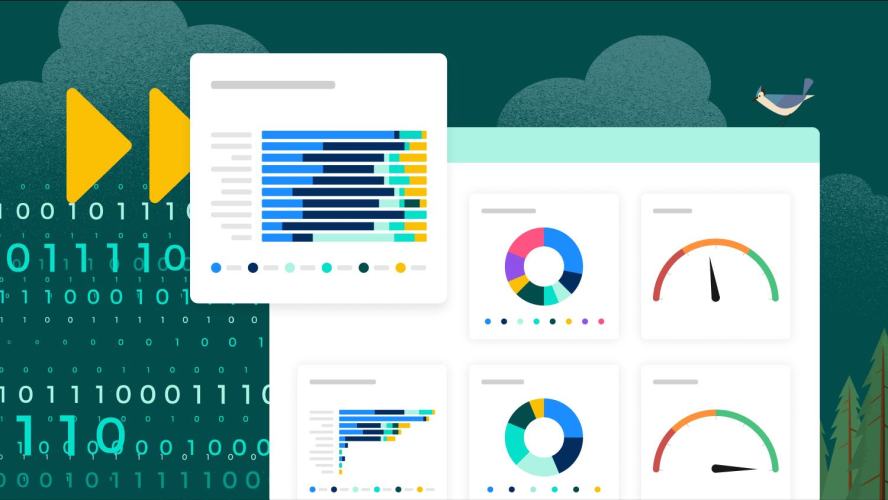Compensation Transformation: 7 Tips to Help You Develop Competitive Sales Comp Plans



Learn how a targeted approach to comp planning enables you to hit sales goals — while empowering your reps.

Samuel Holzman
Considering the speed with which the world of sales and compensation changes, comp managers are constantly pondering new ways to design, execute, and manage sales comp programs over the coming years. But, in this era of constantly shifting market conditions, it can be difficult to know what changes will best set your sales organization on the path towards success.
Don’t worry, we’re here to help. In today’s post, we’re offering our top seven tips to transform your approach to sales comp planning.
What you’ll learn:
- #1: Align your sales comp plans with your business goals
- #2: Emphasize revenue expansion
- #3: Personalize your sales incentive programs
- #4: Enhance your sales comp strategy with AI
- #5: Involve a broader committee of key stakeholders
- #6: Leverage a mix of individual and team-based incentives
- #7: Incentivize every important touchpoint in the deal lifecycle
Motivate your reps with transparent incentive pay
Discover the power of automating commissions with Salesforce Spiff, and easily create incentive programs that scale.



Compensation transformation tip #1: Align your sales comp plans with your business goals
Sales comp planning gives you the opportunity to assess your overarching business goals and how well they align with your comp strategy. This is an important step to take every year, but even more so after an extended period of economic volatility.
Many companies are zeroing in on gross profit margin and other efficiency indicators as they seek to offset previous slowdowns in revenue growth. If efficient growth has become your company’s primary goal, you need to assess your comp plans and make sure that it incentivizes sufficient sales to support growth. For example, paying a high commission rate on a product that drives less profit than your other offerings might contradict an efficiency-first strategy.
Compensation transformation tip #2: Incentivize sales targeting revenue expansion
Last year saw an extended slowdown in new business revenue for many SaaS organizations. Market data shows that the proportion of annual recurring revenue (ARR) earned from new business decreased from 61.4% in 2020 to 52.9% in 2023. Meanwhile, the portion of ARR derived from expansion (upsells, cross-sells, etc.) has increased from 29% to 36.3% over that same time period.
Whether or not your business is struggling to generate new business, these trends prove the importance of emphasizing revenue expansion across your comp plans. If you want your sales reps to upsell or cross-sell, for example, you need to incentivize them by tying these activities to potential compensation.
Make sure you define what up-selling and cross-selling look like for your organization in specific and measurable terms. Metrics to prioritize may include:
- Renewal rate
- Upsell rate
- Churn rate
- Average contract value increase
- Customer lifetime value
Of course, an effective sales compensation transformation doesn’t mean shifting completely from new business to an upsell-driven approach. But, the more you incentivize expansion across your comp plans, the better equipped your business will be to handle prolonged stages of volatility.
Compensation transformation tip #3: Personalize your sales incentive programs
Personalization is critical to a successful sales comp strategy. It’s likely that you already differentiate your commission plans by role. For example, an account executive (AE) comp plan will look different than an SDR comp plan because each role has a different relationship to the sales cycle.
But, considering the importance of competitive sales compensation— compensation is one of the top reasons sales reps leave one job for another — you should consider experimenting with additional forms of personalization in your comp plans.
To start, you might implement a range of incentive options that qualifying sales reps can choose from. A sales rep might prefer additional vacation days or benefits over a small monetary incentive, for example. This sort of change may seem small, but it’s significant. And giving sales reps more of a say in their own compensation will only benefit your organization in the long run.
Compensation transformation tip #4: Enhance your sales comp strategy with AI
At this point, it’s impossible to discuss sales compensation transformation without discussing artificial intelligence. AI is currently being used or explored by 77% of organizations, and the ability of AI-powered tools to enhance your sales comp strategy has evolved leaps and bounds over the past year alone.
In fact, you can revolutionize nearly every facet of your sales comp strategy with the help of the right tools. AI can automatically gather and deliver data-driven insights that continuously improve your commission plans — if you have that data stored in a single source of truth, like your CRM. You can also leverage AI to communicate complex formulas to reps in language they can understand. The list goes on.
You don’t need to go all-in on AI, as the technology can have its pitfalls if it’s used improperly, but at this point, it’s critical to at least start considering a concrete plan for how you’ll use AI for sales planning and execution.
Compensation transformation tip #5: Involve a broader committee of key stakeholders
As the landscape of sales compensation becomes more nuanced, one thing is for certain: It’s no longer possible for finance or RevOps teams to perform sales comp planning in a vacuum.
Sales compensation isn’t just about getting the numbers right — it’s about understanding business objectives, employee needs and preferences, market conditions, and how each of these variables impacts one another. To do that, you’ll need to involve more stakeholders in all major sales comp decisions.
Each department you involve will offer unique insights that are vital to the development of compensation strategy. RevOps is typically best equipped to handle comp plan design (click here for an in-depth look at this critical sales function). However, sales leaders must inform this process with insights into the real-life perspectives of their sales employees. Meanwhile, HR can provide valuable input into fairness and equity considerations, along with insights into how comp strategy is affecting talent acquisition. Last but not least, finance teams need to provide their buy-in from an implementation and administration perspective.
Compensation transformation tip #6: Leverage a mix of individual and team-based incentives
Traditionally, incentive compensation has focused on individual efforts and achievements. However, as the business landscape evolves — especially if your company has nuanced, multi-stage sales cycles — your sales comp strategy should acknowledge both collective and individual performance. It’s important to reward the individual who closes a deal while also offering shared rewards that boost morale and motivation for the whole team.
Team-based incentives also help to foster a sense of collaboration across the sales team, which is more important as sales cycles grow longer and more complex. Instead of incentivizing reps to compete with one another, team-based rewards will incentivize them to help each other with open opportunities, share information, and view every win as a shared victory.
Compensation transformation tip #7: Incentivize every important touchpoint in the deal lifecycle
With complex sales cycles, it’s important to consider not only closing deals, but the many touchpoints that lead to successfully closed deals. These touchpoints are critical milestones that build trust and buy-in and make inking deals possible.
It’s not sufficient to compensate sales reps solely for objective-based metrics like meetings booked and revenue generated, however. Achieving those objectives depends on so many nuanced steps, spanning across many different channels and roles. If you fail to incentivize these micro-wins and behaviors throughout each sales cycle, you’ll fail to properly facilitate the macro-wins (closed deals, increased revenue) you’re ultimately chasing.
Start by designating a value, like points, to each touchpoint in your sales cycle, from lead response time to post-sale follow-up. Consider assigning rewards to reps for the most points earned. Throughout the year, monitor the extent to which these rewards motivate the right sales behaviors, and adjust your plans accordingly.
Consider comp planning from every angle for consistent success
Adaptability and consistency should be top-of-mind when it comes to sales compensation planning. Recent years have shown us how market volatility can have an immediate and major impact on the effectiveness of your comp strategy. The tips for compensation transformation we covered above will help you build resilient, consistent comp programs that satisfy your sales reps and support business goals no matter what conditions you face.
Launch sophisticated compensation plans fast
Is outdated commissions management hurting your growth? See how to quickly create automated incentive plans that motivate your reps.


























